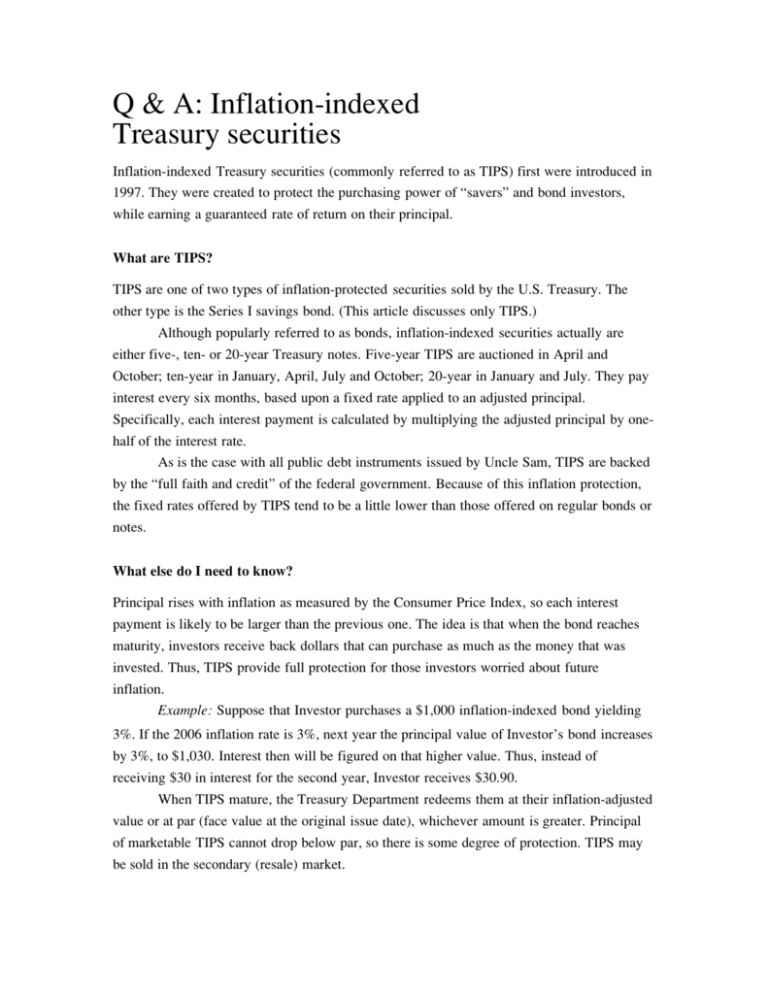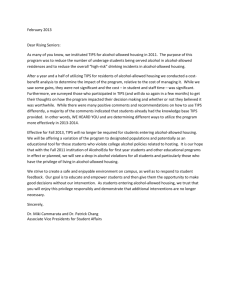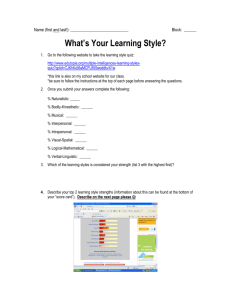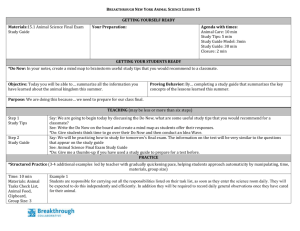
Q & A: Inflation-indexed
Treasury securities
Inflation-indexed Treasury securities (commonly referred to as TIPS) first were introduced in
1997. They were created to protect the purchasing power of “savers” and bond investors,
while earning a guaranteed rate of return on their principal.
What are TIPS?
TIPS are one of two types of inflation-protected securities sold by the U.S. Treasury. The
other type is the Series I savings bond. (This article discusses only TIPS.)
Although popularly referred to as bonds, inflation-indexed securities actually are
either five-, ten- or 20-year Treasury notes. Five-year TIPS are auctioned in April and
October; ten-year in January, April, July and October; 20-year in January and July. They pay
interest every six months, based upon a fixed rate applied to an adjusted principal.
Specifically, each interest payment is calculated by multiplying the adjusted principal by onehalf of the interest rate.
As is the case with all public debt instruments issued by Uncle Sam, TIPS are backed
by the “full faith and credit” of the federal government. Because of this inflation protection,
the fixed rates offered by TIPS tend to be a little lower than those offered on regular bonds or
notes.
What else do I need to know?
Principal rises with inflation as measured by the Consumer Price Index, so each interest
payment is likely to be larger than the previous one. The idea is that when the bond reaches
maturity, investors receive back dollars that can purchase as much as the money that was
invested. Thus, TIPS provide full protection for those investors worried about future
inflation.
Example: Suppose that Investor purchases a $1,000 inflation-indexed bond yielding
3%. If the 2006 inflation rate is 3%, next year the principal value of Investor’s bond increases
by 3%, to $1,030. Interest then will be figured on that higher value. Thus, instead of
receiving $30 in interest for the second year, Investor receives $30.90.
When TIPS mature, the Treasury Department redeems them at their inflation-adjusted
value or at par (face value at the original issue date), whichever amount is greater. Principal
of marketable TIPS cannot drop below par, so there is some degree of protection. TIPS may
be sold in the secondary (resale) market.
What are the tax consequences of TIP investments?
Although TIPS are exempt from local and state taxes, the interest paid (that is held outside of
a tax-deferred account) is ordinary income and subject to federal income tax. Each payment
of interest as well as the increase in value of principal must be included as income on an
investor’s income tax return.
What’s important to keep in mind here is that the tax generated by the increase in
value in principal must be paid, even though the increased principal has not actually been
received by the investor. Should inflation balloon significantly, it’s conceivable that an
investor could owe Uncle Sam more in annual tax than he or she actually receives in interest.
________________________
Conservative investors may well find attractive the inflation protection offered by TIPS. And
as investments for 401(k) plans and IRAs, inflation-indexed bonds may make sense because
current tax on interest and the increase in principal can be avoided.
Are inflation-indexed bonds right for your portfolio? Take the first step by speaking with a
professional who can evaluate your needs, review your current holdings and then make
recommendations that make sense in your particular circumstances.
© 2007 M.A. Co. All rights reserved.
Any developments occurring after January 15, 2007, are not reflected in this article.









